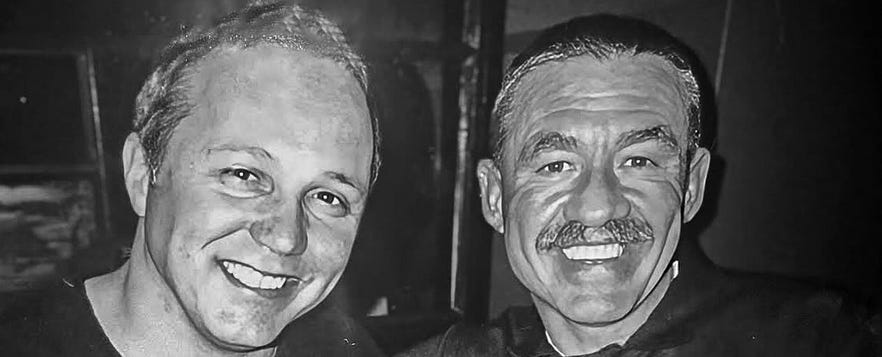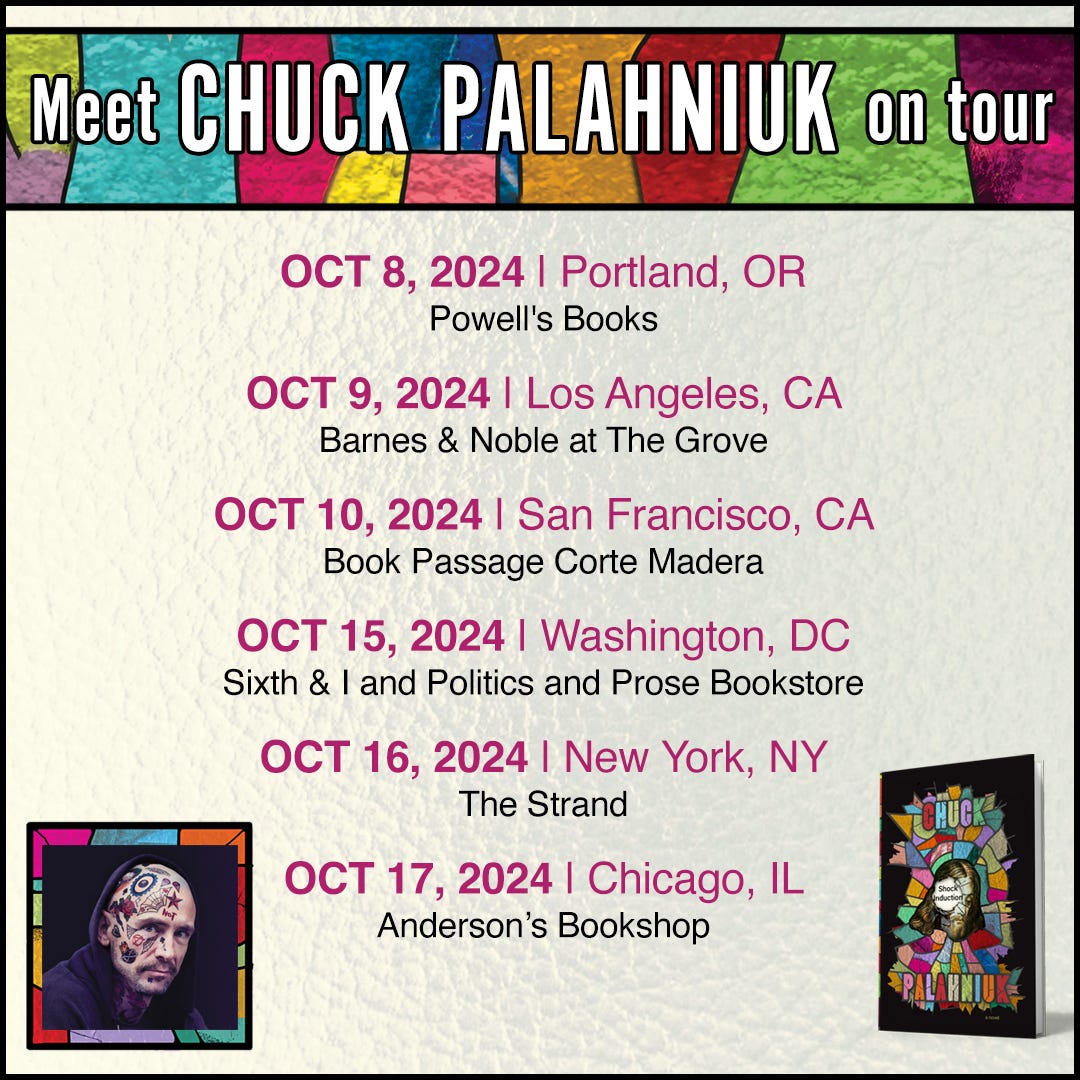Peter Christopher and Tom Spanbauer, Photo Courtesy of 11:11 Press
During this past two weeks of post-Tom life, one detail has yet to appear in print. Tom had been a bit player in the Bowery Theater while he’d been a student of Gordon Lish in the MFA program at Columbia. Lish asked students to read their work aloud, and only listened until the point the forthcoming story no longer captivated him, and Tom’s success in that class might in part be due to his acting experience. In his own Dangerous Writing workshop, Tom asked students to read aloud, a request based on both his Lish training and his work in the small grungy theater.
This was not the famed Bowery Theater. The Bowery where Tom played, it sat roughly fifty people, but in the Leigh Bowery club kid days of experimental theater — see also Charles Busch — the place was much beloved, akin to the Performing Garage. On my first trip to NYC, to meet with publishers interested in launching Invisible Monsters, Tom arranged for me to read a portion of that novel aloud at the Bowery.
Between Lish and the Bowery, Tom grasped that reading aloud is the best way to test work. Either you get bored or your audience does. Either way, you go back to revise.
As an actor, Tom also saw how getting “into character” helps you write from within the story, warping and burning the language as needed. If you’re writing “writerly” you’ll bore yourself before you read to the bottom of the first page.
Even if you’re alone, read your work aloud. Better you should bore yourself than get on a stage where you put an audience to sleep.
One Detail That Did Surface About Tom
In interviews, a former student of Tom’s, Suzy Vitello, recalled the first writing exercise he’d give in workshop. Tom asked people to write about a moment in life after which they were forever changed. In doing so — identifying such a moment, then depicting it — Tom trained writers to create such moments of epiphany in fiction.
First, we study our own ah-Ha! moments. Then, we learn how to craft make-believe moments of transformation for our characters. And like telling a joke, we see what details must be presented in exactly what order. Omit one detail, or place it wrong in the sequence, and the entire joke is ruined.
Before we can create that faked moment of revelation, Tom showed us that we needed to study and recreate such a moment from our own lives.
Last week was a hoot. I actually got a kick out of reading the linked work and searching for a strange sentence that might serve as a better lead in each.
In Modernism each sentence serves to channel the reader forward. As Monica Drake described it, each sentence is a banal sign that says, “Story ahead! Keep going! Story this way!” But in Minimalism, each sentence should be its own jewel. That’s why you can open Amy Hempel’s work to any page, allow your eyes to land on any sentence, and the effect feels more fulfilling than the combine 576 pages of Raise the Titanic!.1
These were the type of unusual, burned sentences I sought in your work.
Each sounded so in-character and strange that it suggested a different mind. Yours. This week I go on tour, but I’d like to see more links and chime in on more work. Compared to last year’s 19-city tour, this year is a cake walk. The tour will include a new short story called What I Learned Over My Summer Vacation, and it’s destined to offend. Once the tour is over I’ll post the story to this site.
Please post your links below, in Comments. I’ll get to as many as I can in the coming week.
Which I reread this summer. The climactic sex scene takes place in a First Class stateroom so well preserved by the ocean chill that the characters simply change the damp bedding for dry sheets before they fornicate on the century-old mattress. Plot spoiler: The book’s big moment of reveal is exactly the same jump scare as Peter Straub used in Ghost Story. In effect, you read 483 pages (the Straub novel) just to have a waterlogged dead body throw itself in your face.
That’s the gamble with Modernism, every sentence defers to the next. So, if the culmination of the 400+ pages is a crap moment, you feel furious. In Minimalism, each sentence can be glorious, so the reward is on-going and you’re not so invested in the ending being EVERYTHING. Better yet, in Minimalism you’re more likely to go back and reread the book. The language itself is so enthralling that you’ll revisit the book for the language instead of the plot.
This summer I also reread Tom Clancy and Peter Benchley and Robin Cook. In each case, once you see the plot played out you never want to touch the novel ever again. That’s the case for most Modernist fiction.










Keep in mind, the opening line doesn't have to make sense. Look at the first lyric in good songs:
"How 'bout getting off of these antibiotics."
https://www.youtube.com/watch?v=OOgpT5rEKIU
Alright. My town is rubble, but my lawn is mowed and my wifi is working, so here goes: https://open.substack.com/pub/hessenwolf77/p/like-death-only-better?r=hcjz3&utm_medium=ios